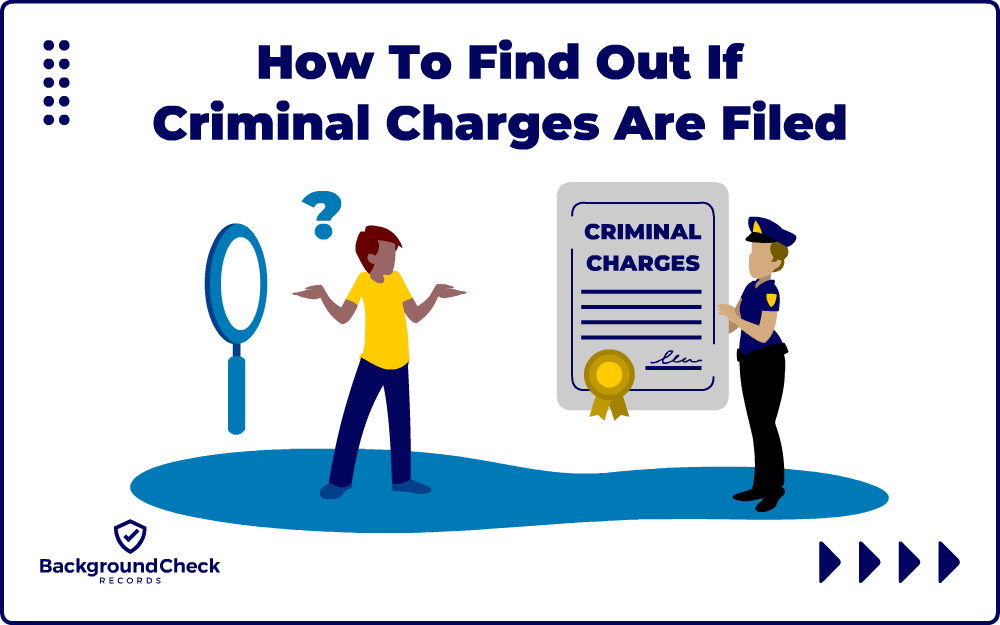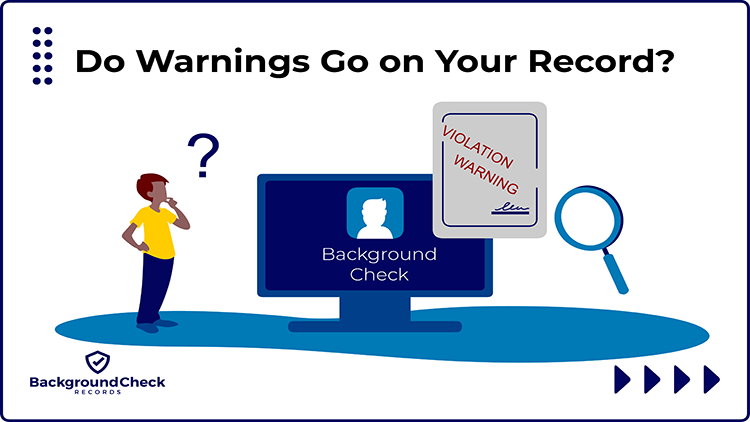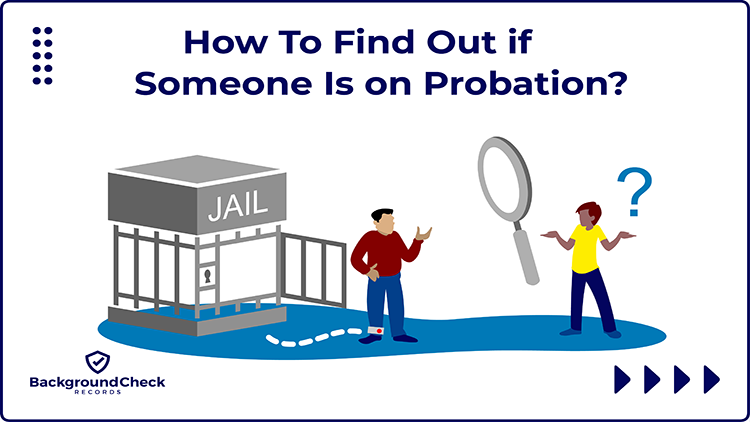How to Find Out if Criminal Charges Are Filed (in Seconds)
Despite the 9 million adults arrested in the USA in 2019, many cases started with police reports or the filing of criminal charges. Instead of speculating, discover efficient methods to quickly determine if criminal charges have been filed.1
Ultimately, if you’re looking for information on “determining if you have been charged with a crime,” there are multiple methods to check for pending criminal matters, understand if charges were dropped, or learn the outcome of your interaction with law enforcement. Explore what follows after notifying authorities and the subsequent actions to consider.
Someone Pressed Charges Against Me or a Police Report Was Made: Were Criminal Charges Filed?
It happens every day, someone calls the police to report a crime against them, but were charges filed against someone? In most cases, where the crime occurred, and the type of crime (infraction, misdemeanor, or felony) will determine what steps police will take next.
The process of determining whether criminal charges have been filed varies across jurisdictions, as each state has its own laws, and policies are set by individual District Attorney’s offices based on these laws. For example, in some states, individuals may be able to file complaints directly with the court. However, in these states, District Attorneys may choose not to prosecute cases lacking a police report or formal investigation.
In addition, merely filing a police report is not the same as pressing criminal charges. Sometimes a person will file a police report to have documentation of an incident occurring without the matter being referred for prosecution. Any time police are called to a location to look into a matter, the officers must document the matter either via an incident report or a log entry such as a police report.
On the other hand, pressing charges means the DA or grand jury are formally stating the alleged offender should be charged and tried in court. A person does not necessarily go to jail if someone presses charges against them though and a police report vs pressing charges is the difference between documenting the incident vs having a hearing on the matter.
There are a number of factors that go into whether or not criminal charges are formally filed and docketed for court, and deciding when to file criminal charges varies. Plus, there are limitations on how long the prosecution has to file charges and proceed to court.
When Are Criminal Charges Filed?
At any time following the commission and discovery of a crime, criminal charges may be filed; however, certain elements must be met before a prosecutor decides to proceed with charges, or before a grand jury returns a true bill of indictment. A true bill of indictment means formal charges are being filed against the suspect.
States also have statutes of limitations regarding when charges must be filed following the commission or discovery of a violation. Once the statute of limitations, or time limit, has been reached, charges cannot be filed for that particular offense.
This means that once the crime is reported or discovered, the prosecution is on the clock to get the matter to trial. Since a jurisdiction’s statute of limitations can range from six months to no limit (depending on the seriousness of the crime), it is difficult to say charges will be filed within a set timeframe.
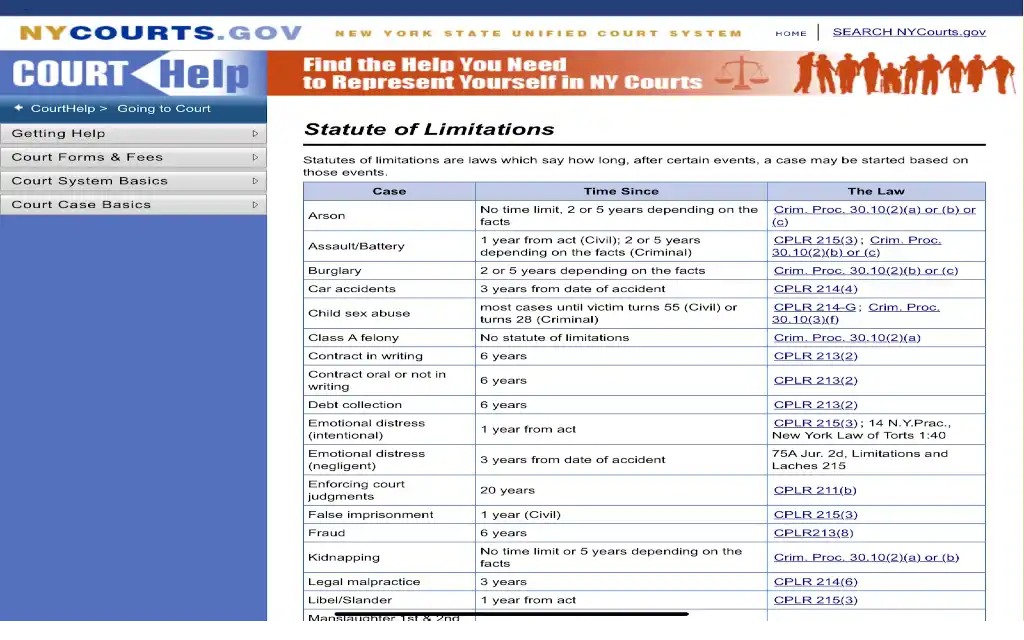
Outside of the statutes of limitation or time limits when criminal charges can be filed, there are also guidelines regarding who can actually file charges.
Can Anyone File Criminal Charges? Who Decides if Criminal Charges Are Filed?
In some states, such as Georgia, misdemeanor charges can be filed directly by the victim who swears to or affirms an affidavit with the local magistrate’s office. Magistrates are court officials designated to make determinations in various court proceedings. The magistrate determines the legal validity of the complaint and files appropriate charges and issues a warrant or summons when a citizen swears or affirms a complaint.2
This means the victim fills out a complaint and writes a statement in the magistrate’s office and then says the information is true and correct under oath. In these cases, the victims can file an assault charge, for example, without calling law enforcement first and getting someone arrested.
Other states, such as New York, require a police report and investigations in all cases before they are presented to the District Attorney (DA). The DA is the one who decides if charges will be filed or not.3
The ultimate decision to file charges rests with the prosecution or District Attorney’s office. Using prosecutorial discretion, a DA may decide not to pursue criminal charges on any complaint for various reasons. Those that are docketed, meaning they have been placed on a court calendar for a trial, based on citizen complaints to the magistrate can be dropped by the DA at the time they read the docket at the beginning of court that day.
Prosecutorial Discretion
Not every case presented to the DA will result in criminal charges because where legal thresholds have not been met, charges will not be filed. Additionally, in cases where the legal threshold has been met, but supporting evidence is weak, the DA may delay filing charges until further evidence is discovered or opt to not pursue a hearing at all.
The District Attorney is an elected official; therefore, they will not file charges on cases that do not have sufficient support for a guilty verdict. District Attorney’s campaign on their win-loss record means they do not proceed with every matter presented to their office. When someone presses charges without proof it is extremely difficult to build a case against the defendant.
Formal charges are part of the public record, but investigative reports are not. Therefore, the subject of the complaint or pending charges may or may not know when they are under investigation. Sometimes, the alleged offender is not aware of the action until they are arrested or questioned by law enforcement.
How to Determine if You’re Under Investigation or if a Case is Being Built Against You?
When a crime is under investigation, individuals may wonder how they can ascertain whether they are being targeted or if a case is being prepared against them. Investigative reports are typically not public records, so they do not appear on background checks. However, there are methods available for individuals to discover if they are under investigation and to determine whether criminal charges have been filed.
Questioning By Law Enforcement Officer
The first indication a case is being built against someone or charges may be forthcoming is when the individual is questioned by police as a possible suspect. During an investigation, law enforcement will question the victim or victims, witnesses, and sometimes the suspect.
When being questioned by police as the suspect, certain protections are in place to protect the rights of the individual. The Fifth Amendment to the United States Constitution protects suspects from being forced to make incriminating statements against themselves.4
Be aware, however, that Miranda Rights are only required when the subject is being questioned while in custody. Routine questioning does not require Miranda Warning; however, the right to remain silent stands regardless of the custody status of the person. In other words, no one is ever required to answer questions by law enforcement.5
Search Warrant is Executed
Another indication a person may be under investigation or criminal charges have been filed is when they are served with a search warrant which allows law enforcement to seek additional physical evidence of a crime; however, they are not all-encompassing.
A search warrant must detail what is being searched (such as a house or vehicle), and what evidence is being sought.
An Arrest is Made
When a person is under investigation or charges have been filed, they may be taken into custody and this might be the first time the individual becomes aware there is a criminal complaint against them.
When someone is taken into custody, whether for questioning or pursuant to an arrest warrant, they must be informed of their Constitutional rights. Public records offer accessible methods for nearly anyone to uncover information on finding out the reason for someone’s arrest.5
Once in custody, some states require charges are filed within 24 hours or the individual must be released and others have a 48 to 72-hour window.
When an arrest isn’t made, the prosecutor is bound by the statute of limitations for filing or pressing charges. For example, Minnesota law states a person arrested must be brought before a judge within 36 hours of arrest (excluding weekends or holidays).6
A Criminal Summons is Served
In some cases, a warrant will not be issued when criminal charges are filed, but the subject referred to as the defendant in the court documents, must be advised there are charges filed and when it is scheduled for court.
When someone is served with a criminal summons, they are not taken into custody at that time. They will only go to jail if they fail to appear in court on the charges, or if they are sentenced to jail following a guilty verdict.
At what point in the process are charges filed? When charges are filed, what happens in the next steps? Filing charges is a process that doesn’t happen instantly. There are things that must occur before the matter reaches a courtroom.
How Criminal Charges Are Filed & What Happens When Criminal Charges Are Filed?
Filing charges is not as simple as picking up the phone and calling law enforcement. There are a number of steps that go into charges finally making it to the courtroom. The steps from beginning to end are outlined below.
Someone Files a Police Report & Presses Charges
At first, someone commits a crime, and the victim contacts law enforcement. While the usual terminology is “they pressed charges” they are actually just making a police report at this point. Law enforcement takes the victim’s statement, possibly takes pictures of injuries or damaged property, and may collect some evidence (depending on the nature of the crime).
From this point, law enforcement either launches an investigation or presents the matter to the court, either the District Attorney’s office or the magistrate, for formal charges. If there is enough evidence to proceed to trial, the DA “presses charges” against the defendant.
Police have to charge someone with a crime when the offense is committed in the presence of the officer, or when there is reasonable suspicion the person under investigation committed the crime in question.
For example, in domestic violence cases, when an assault occurs in the presence of law enforcement, the officer or deputy must seek criminal charges against the offender.
Prosecutorial Review
When law enforcement presents the case to the District Attorney’s office, the DA or ADA will review the matter and see if there is enough evidence to proceed to hearing. If there is insufficient evidence, the DA may direct law enforcement to conduct a more thorough investigation to collect more evidence.
When there is enough evidence, direct charges may be filed in misdemeanor cases, and a grand jury packet (or felony packet) may be prepared and brought before the grand jury for review for felony cases.
Grand Jury
Formal felony charges are based on whether or not a grand jury returns a true bill of indictment. Simply put, this means the grand jury reviews all the evidence presented, deliberates over the evidence and victim and witness statements, and determines whether or not there is enough evidence to show a crime was committed and the accused was most likely the one who committed the crime.
Grand juries are looking for probable cause, not guilt beyond a reasonable doubt. When probable cause is established, a true bill of indictment is issued and the case goes to court for trial.
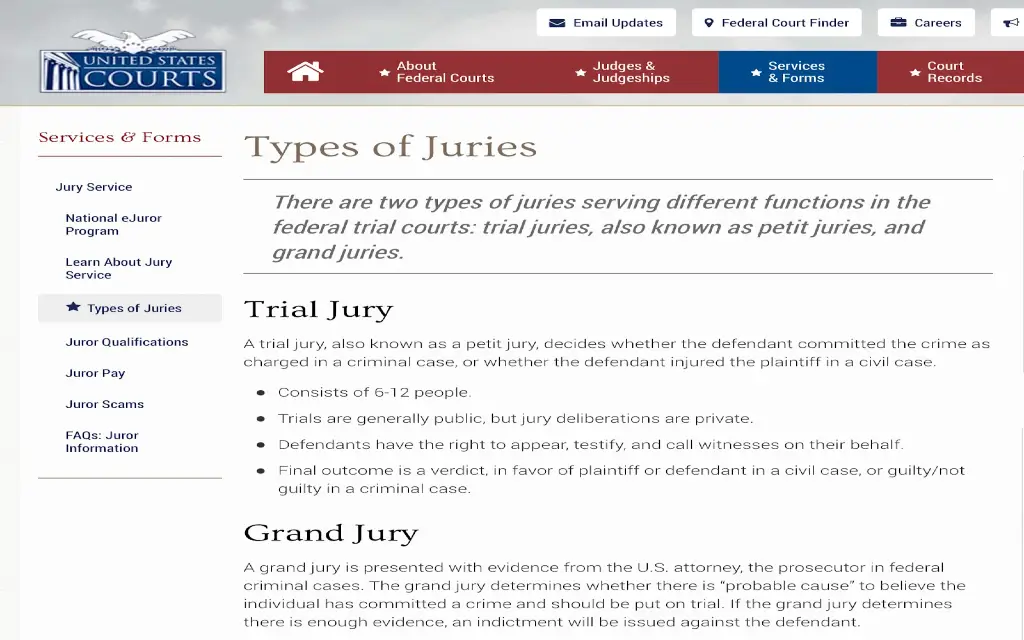
An Arrest Warrant or Summons is Issued
When charges are filed, an arrest warrant or summons is issued compelling the accused to appear in court or compelling law enforcement to take the accused into custody to be held until they can post a bond or until trial.
Case Goes to Court
Once charges have been formally filed, the matter goes to court. At this point, the case can be dismissed prior to the hearing starting or can result in a non-conviction if the DA does not prove guilt beyond a reasonable doubt.
The hearing itself can be a bench hearing (where the judge makes the determination of guilty or not guilty), or it could be a jury trial where a panel of six to twelve jurors determines guilt.
When someone files a police report or presses charges, it usually happens in these orders, but of course, there are exceptions. For example, when police make a traffic stop for a moving violation, they may see evidence of a more serious crime and take the person into custody at that point. The police will then transport the individual to a magistrate’s office or courthouse and file charges immediately based on the police report.
Additionally and as mentioned, some states allow victims to file charges directly with the magistrate’s office for misdemeanor offenses, taking law enforcement out of the equation unless the District Attorney requires more investigation before proceeding. When the victim has the option to file misdemeanor charges directly, they are automatically placed on the court docket.
The next phase in the process, once charges are filed, is notifying the defendant or taking them into custody. Sometimes an arrest is the first indication to someone that they have been under investigation for a crime.
How to Know if Charges Are Filed Against You?
So how does someone find out if charges are filed against them? There are a number of methods a person can use to learn if they have been charged with a crime. It’s important to know how to check pending charges no matter where a person lives.
Personal Background Check
One way to find out if there are criminal charges outstanding is to perform a personal background check through a third-party search provider or online resources provided by state or local governments.
Some third-party websites offer this service at no cost, providing results within seconds. This helps determine if pending charges appear on background checks and if warrants appear on background checks, as both may include other relevant criminal information. Alternatively, additional services may require a nominal fee for comprehensive reports.
Another method of finding out if there are criminal charges against a person is to contact local law enforcement and ask. This is a quick and free way to find out when charges have been filed; however, not every law enforcement agency will provide this information over the phone.
Contacting the local police department or sheriff’s office is also free, but may return mixed results depending on the state law and department policy. Some departments have public warrant search portals that can return free results in seconds online. For example, Utah has an online public statewide warrant search system anyone can use to see if a person has been charged with a crime.
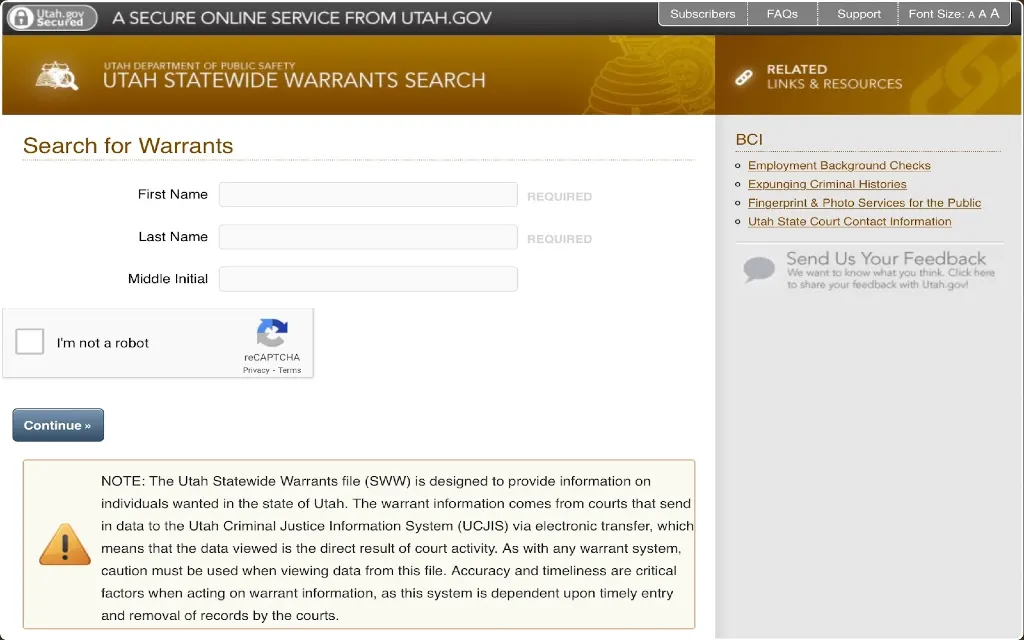
Clerk of Court’s Office & Court Dockets
When charges are filed, the clerk of the court’s office has a record of the charges and places them on the court docket. Individuals can call the clerk’s office to inquire about pending charges, and may clerk’s offices publish criminal dockets online for the public to view.
Be aware, however, that only those cases where service of a warrant or criminal summons have been returned showing they were served will be docketed to prevent clogging up the court system.
Returned documentation showing service has been completed means law enforcement has officially notified the subject of the charges and the date and time they are to appear in court. Service is usually accomplished by placing the person under arrest or handing them a copy of the criminal summons.
Utilizes Services of an Attorney or Bail Bondsman
If someone suspects they may have criminal charges against them, such as a hit and run scenario, they can hire an attorney or seek the services of a bail bondsman to find out. If they learn there are charges, an attorney can help protect their rights from the beginning of the court process and help them facilitate turning themselves in.
A bail bondsman can also help facilitate surrender to the police and assist with posting any bond or bail set by a judge. The bail bondsman will also help ensure the subject returns to court for the hearing.
Just because charges are filed does not mean they will automatically result in a conviction. When charges have been dropped, what happens to the record?
How to Find Out if Criminal Charges Have Been Dropped?
When charges are dropped, this means the court hearing has not started. In other words, the DA decides to not pursue the charges for a variety of reasons (mainly due to a lack of evidence to support the case). When this happens, there are several ways the defendant can find out.
Charges Dropped in Court
The quickest way to learn if a charge has been dropped is by appearing in court and hearing the DA drop the charges. The defendant may also learn if there are any plans to reinstate the charges at a later date.
Personal Background Check
Because charges are considered public records, even when they are dropped they will appear on a background check. The check will show if the charges were dropped or dismissed. Paying a third-party search site for a personal background check is another way to learn if charges have been dropped.
Hire an Attorney
When the defendant has hired an attorney, their lawyer is required to keep them informed of their case status. When the case is dropped, the attorney will notify the defendant of the action taken and can discuss the next steps if the charges are reinstated.
In addition to an attorney, the clerk of court can notify the defendant that a charge has been dropped against the defendant. Clerk of court records is generally public records unless they involve juvenile offenders or have been sealed by order of a judge.
Learning charges have been dropped and no longer present a threat to their freedom can take a huge weight off someone’s shoulders. Finding out charges have been filed and are still pending can be stressful, but there are steps someone can take.
Steps to Take Once Criminal Charges Are Filed Against You
Once individuals discover whether criminal charges have been filed and confirm that charges have indeed been filed, there are several immediate actions they should take. Understanding their rights and knowing the steps that can effectively resolve the matter is crucial. These steps will be detailed below.
The first thing anyone wants to do when they learn there are charges against them is to hire an attorney. Those who cannot afford an attorney, may qualify for a court-appointed one or can contact legal aid in their state to get representation. Criminal cases can severely impact a person’s freedom, finances, and future, so a lawyer is a key to helping mitigate the effect.
Each state has a legal aid office or court-appointed attorney process designed to help indigent defendants have legal representation. An indigent defendant is a person who has been accused of a crime but cannot afford an attorney because their income is below the poverty level for that state. For example, defendants who are homeless are considered indigent.
The table below provides a link for each state’s legal aid or public defender office:
Step 2 – Know Your Rights
As a defendant in a criminal case, the individual is guaranteed certain rights from the beginning to the end of the process. Having legal counsel can help safeguard those rights so the person accused has a chance to fight the charges against them.
Law enforcement cannot hold someone without an arrest warrant or without reasonable suspicion a person has committed a crime. In other words, unless a person is being arrested, or law enforcement witnessed a violation or has reasonable suspicion, the potential detainee has the right to leave.
Additionally, unless law enforcement has a search warrant or probable cause, a person can refuse to let police search their home, person, or vehicle until a search warrant is issued. This includes taking hair, skin, blood, or urine samples. The protections against unlawful search and seizure are guaranteed by the Fourth Amendment to the United States Constitution.7
Per Miranda Rights (which were discussed earlier), a person has the right to not answer questions other than basic information such as name, age, and address, and the right to be represented by counsel during questioning. The suspect also has the right to not make incriminating statements against themselves. This means they do not have to answer questions regarding the crime they are being accused of committing. This right is protected by the Fifth Amendment to the United States Constitution. (4)
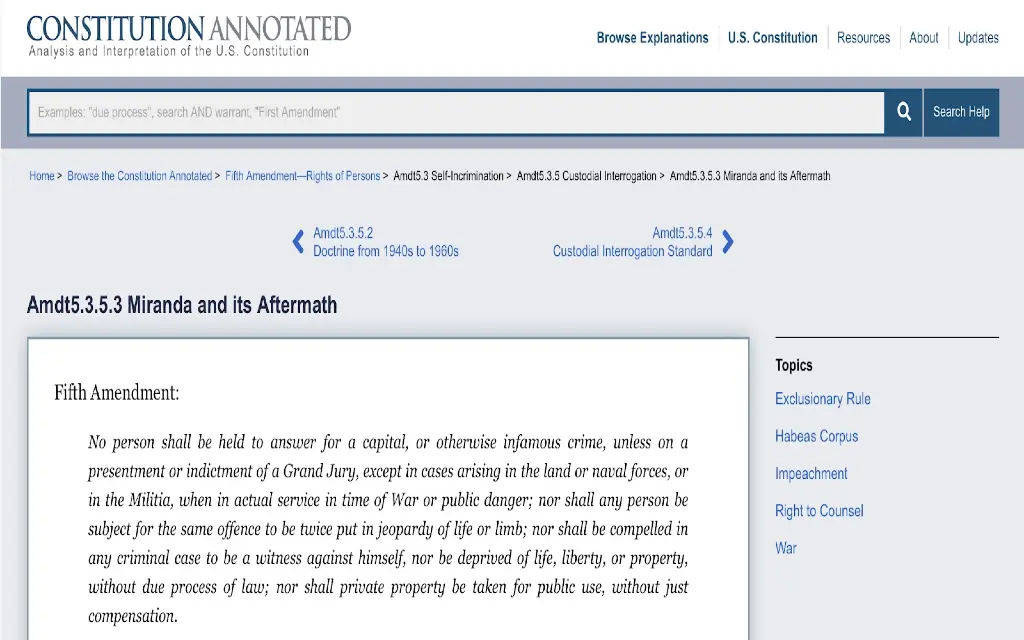
Rights don’t stop at Miranda. A person charged with a crime also has the right to a speedy trial, meaning the case must be heard in court as quickly as possible. The accused also has the right to know the exact charge against them in order to start building a defense.
Defendants also have the right to confront their accusers in court. While the victim’s testimony is a critical part of the District Attorney’s case, a defendant has the right to not take the stand during the hearing.
Step 3 – Posting Bail
While most people want to rush to post bail for someone who is charged with and arrested for a criminal offense, make sure an attorney has been consulted and is involved in this process. Again, an attorney can help make sure the defendant’s rights regarding bail or bond are being protected. The attorney can also present an argument to the court to reduce bail or release a person on their own recognizance.
Step 4 – Pre-Trial Planning, Meeting With Your Attorney
The defendant should meet with their attorney as quickly as possible to start building a defense. It is best to be completely honest with the attorney as well. Even if the defendant committed the crime, the defense attorney may be able to get the charges reduced or dropped based on applicable legal arguments. When meeting with the defense attorney, honesty is key.
Write a statement for the defense attorney outlining the details of the incident and any witnesses to the event. This will give the attorney something to refer back to while preparing their arguments for court.
Step 5 – Avoid Discussing Charges With Family and Friends
While the defendant may want the support of family and friends, it’s best to not talk to them prior to the matter being disposed of in court. Conversations with loved ones are not considered confidential by the court and things said could be used as part of the prosecution’s case against the defendant.
Step 6 – Go to Court
The defendant must appear at all court hearings unless otherwise directed by the judge or their attorney. Court attendance not only shows that the defendant is taking the matter seriously, but it is also the quickest, most efficient way to get information about the status of the charges.
Of all the steps listed above, hiring an attorney is the most important when someone learns they have been charged with a crime. This levels the playing field and gives the defendant a better chance of charges being dropped, dismissed, or reduced.
Facing criminal charges can be a stressful experience for anyone. Understanding the process of determining whether charges have been filed and knowing their rights can provide valuable assistance. Some methods for obtaining this information are quick and straightforward, taking only a few seconds.
Frequently Asked Questions
How Can I Determine Whether Criminal Charges Have Been Filed Against Me for a Hit-and-Run Incident?
When someone has been involved in a hit and run, knowing if they have been charged can be difficult. They can run a personal background check to see if the charges appear, but in this case, it’s imperative they hire an attorney to get more information and help defend themselves.
How Long Does it Take to Press Charges? How Long Does a Prosecutor Have to File Charges?
Pressing charges can take as little as a few minutes to several years from the commission of the crime to the formal charging process. Each state has a statute of limitations outlining how long a prosecutor has to present the case to court. The only crime without a time limit is murder.
What is an Indictment vs Arrest?
An indictment is the formal charge stating the subject must appear in court for hearing. An arrest means the person is taken into custody based on a formal charge and a warrant has been issued. So indictment vs arrest means very different things legally.
1 Arrests by offense, age, and race. (n.d.). Office of Juvenile Justice and Delinquency Prevention. Retrieved July 25, 2022, from <https://www.ojjdp.gov/ojstatbb/crime/ucr.asp?table_in=2&selYrs=2019&rdoGroups=3&rdoData=c>
2 In Georgia, most arrest warrants are taken out by a law enforcement officer after investigating the incident. However, Georgia l. (n.d.). Fulton County Magistrate Court. Retrieved July 25, 2022, from <https://www.magistratefulton.org/DocumentCenter/View/2413/Warrant-Application-Accused-Brochure>
3 Criminal Justice Process – NYPD. (n.d.). NYC.gov. Retrieved July 25, 2022, from <https://www1.nyc.gov/site/nypd/services/victim-services/criminal-justice-process.page>
4 U.S. Constitution – Fifth Amendment | Resources | Constitution Annotated | Congress.gov | Library of Congress. (n.d.). Constitution Annotated. Retrieved July 25, 2022, from <https://constitution.congress.gov/constitution/amendment-5/>
5 What Are Your Miranda Rights? (n.d.). Miranda Warning. Retrieved July 25, 2022, from <http://www.mirandawarning.org/whatareyourmirandarights.html>
6 Rule 4.02 – Arrest Without a Warrant, Minn. R. Crim. P. 4.02. (n.d.). Casetext. Retrieved July 25, 2022, from <https://casetext.com/rule/minnesota-court-rules/minnesota-rules-of-criminal-procedure/rule-4-procedure-upon-arrest-with-a-warrant-following-a-complaint-or-without-a-warrant/rule-402-arrest-without-a-warrant>
7 U.S. Constitution – Fourth Amendment | Resources | Constitution Annotated | Congress.gov | Library of Congress. (n.d.). Constitution Annotated. Retrieved July 25, 2022, from <https://constitution.congress.gov/constitution/amendment-4/>

